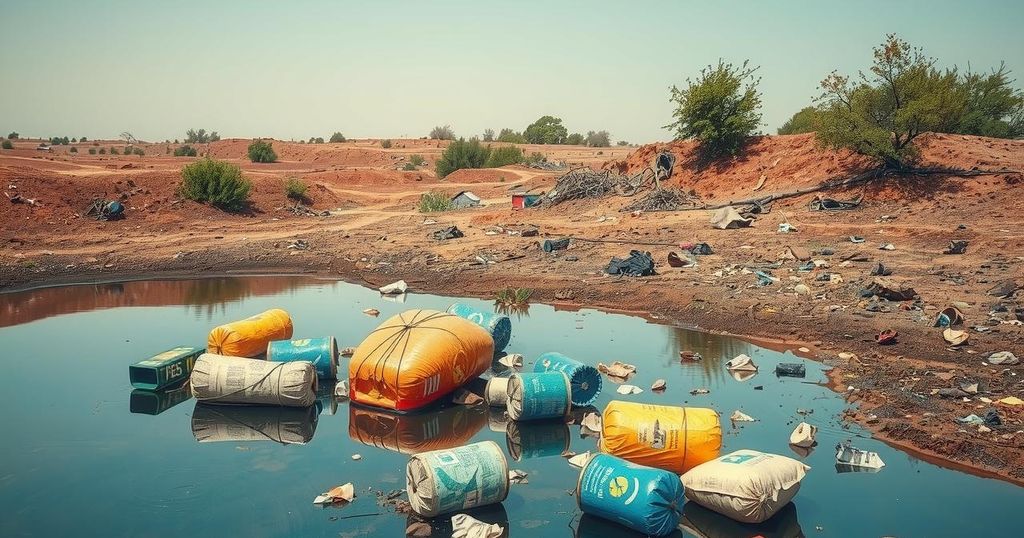Addressing South Africa’s Water Crisis: The Need for Systemic Reforms

South Africa faces severe water supply issues, with significant urban and rural populations experiencing shortages. Current legislation aims to amend water service licensing to ensure accountability and improve water quality, yet systemic challenges—such as insufficient funding, aging infrastructure, and lack of standardization—persist. Comprehensive reforms are required for effective water service delivery.
Water shortages and supply disruptions have increasingly affected South Africa, with recent statistics indicating that 33% of urban residents and 65% of rural residents encounter frequent water cut-offs. Alarmingly, nearly half of urban inhabitants engage in boiling or treating their water prior to consumption. While South African water law recognizes everyone’s right to sufficient water, there remains a significant gap, as 12% of rural populations lack access to improved water sources.
The Blue Drop report on South Africa’s water supply systems highlights that 46% of these systems are incapable of providing safe drinking water, exposing users to waterborne diseases such as cholera, diarrhoea, and dysentery. Furthermore, the Green Drop report indicates that a considerable portion of wastewater treatment plants are critically compromised, with nearly two-thirds at risk of releasing untreated sewage into the environment. The No Drop report reveals a staggering 47% loss of clean water due to infrastructure issues.
In response to these challenges, the government seeks to amend the Water Services Act, requiring water service providers to obtain licenses from the Department of Water and Sanitation. Municipalities will be empowered to appoint new providers if their current ones fail to meet clean water standards, although this is a long-term strategy rather than an immediate solution.
As the principal investigator for the South African Water Justice Tracker, I have observed through extensive research that local governments require significant reforms in revenue generation, system maintenance, planning, and addressing infrastructure misuse. Without such reforms, legislative amendments may prove ineffective.
Proposed amendments necessitate that all water providers secure a license which confirms their technical capabilities and financial management. They must assure adherence to national drinking water standards, with the Department having the authority to revoke licenses from providers that fail to comply.
Licensing water providers is anticipated to enhance accountability and transparency regarding financing, subsequently improving water quality. Regular license reviews will enforce standards, while allowing private entities to invest in water services, albeit with the potential risk of increased tariffs.
However, systemic challenges persist. Municipalities often struggle with insufficient revenue due to non-payment for services. Differences in defining indigence across municipalities necessitate unified standards to uphold the constitutional right to water. Furthermore, under-maintained systems deter heavy users from paying adequate tariffs, leading to revenue shortfalls.
Aging infrastructure pushes people towards alternative water sourcing solutions such as boreholes, further exacerbating municipal income issues. The increasing informality of urban settlements outpaces formal water service planning, creating additional challenges. Moreover, coordination among various governmental departments and addressing the theft and vandalism of infrastructure emerge as critical issues.
To mitigate water wastage, municipalities must address pipeline leaks and promote individual accountability in maintaining household plumbing. A comprehensive set of reforms targeting these systemic issues is essential for the long-term improvement of South Africa’s water service provision.
In summary, South Africa’s water crisis is exacerbated by inadequate infrastructural maintenance, insufficient funding for municipalities, and a lack of unified criteria for indigence. Amendments to water service legislation, while necessary, will not yield immediate results unless complemented by systemic reforms addressing revenue generation, infrastructure management, and community accountability. A strategic and comprehensive reform approach is critical to ensure a sustainable and equitable water supply for all residents.
Original Source: theconversation.com






